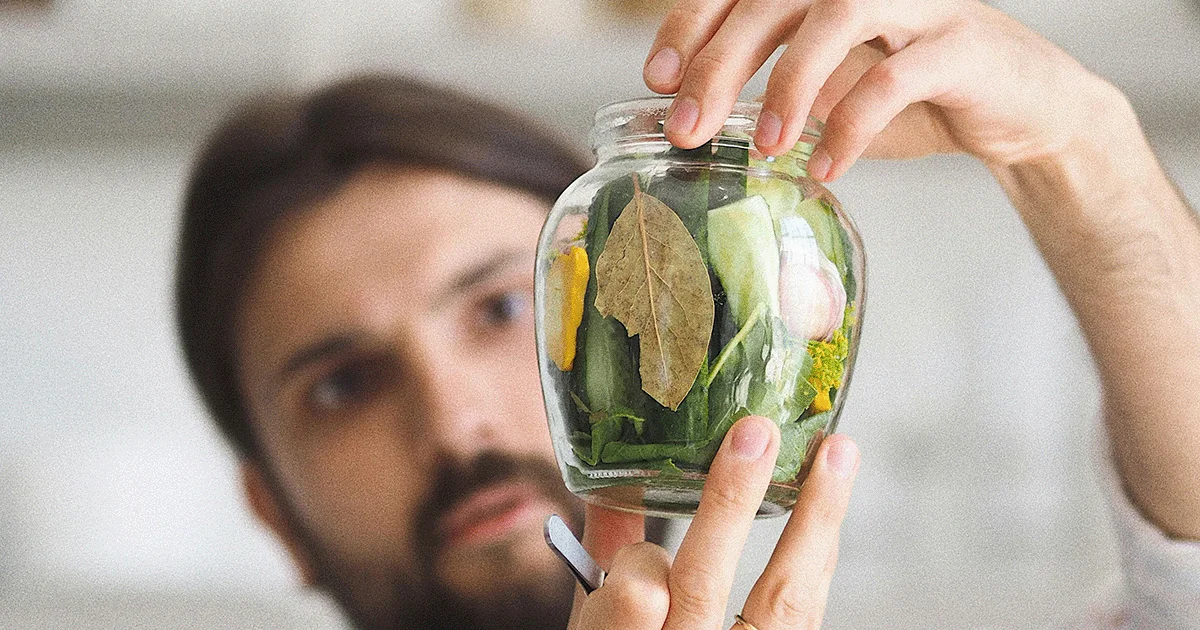Here's what we'll cover
Here's what we'll cover
You’ve likely heard that drinking red wine in moderation may offer a protective effect on the heart. Some researchers point to France’s high red wine consumption to explain the “French paradox”—a finding that the French have low rates of death from heart disease despite diets high in saturated fat.
Scientists have discovered several healthy chemicals in red wine that may offer health benefits. Find out what has researchers excited about one of these chemicals—resveratrol—and what potential impact it could have on your health.
What is resveratrol?
Resveratrol is a naturally occurring chemical found in some plants. It belongs to a group of plant chemicals (phytochemicals) called stilbene polyphenols. Plants make resveratrol to help protect themselves from damage and infections (Salehi, 2018).
It’s that same self-protective quality that allows resveratrol to act as an antioxidant in the body. Essentially, this means it neutralizes free radicals—compounds that can damage cells if levels become too high. Resveratrol also has anti-inflammatory, antiaging, and anti-cancer properties. Researchers are studying how resveratrol may help prevent certain conditions, including heart disease, Alzheimer’s disease, and cancer (Ramírez-Garza, 2018).
Health benefits of resveratrol
Most resveratrol research showing beneficial effects has been in laboratory or animal studies, which means we don’t quite know its effects on humans. In the studies we do have, researchers have found that resveratrol can kill cancer cells or slow their growth, improve heart health, and increase lifespan (Salehi, 2018). While exciting, applying resveratrol to cells in a test tube is much different than giving it to people. Human studies are limited and have found mixed results. Here are just a few:
Heart health
Abnormal cholesterol levels are one of the most important risk factors for coronary heart disease—a condition that occurs when plaque builds up inside the arteries that supply blood to your heart. This can increase your chance of a heart attack. Animal and lab studies have shown that resveratrol may positively affect cholesterol levels (Sahebkar, 2013).
However, a 2013 meta-analysis looking at seven clinical trials (done in humans) found that resveratrol did not affect LDL cholesterol (“bad” cholesterol), HDL cholesterol (“good” cholesterol), or triglyceride levels (Sahebkar, 2013).
Despite this, the authors state that resveratrol may have other properties that promote cardiovascular health. These include decreasing inflammation, lowering blood pressure, and preventing platelets from forming blood clots. Resveratrol may also prevent LDL oxidation—a process that converts LDL cholesterol into a form more likely to cause plaque build-up. More research is needed to determine if these effects can prevent cardiovascular disease and reduce the risk of having a heart attack or stroke (Sahebkar, 2013).
Diabetes
In one randomized, placebo-controlled trial, 66 participants with type 2 diabetes received either resveratrol 500 mg twice daily or a placebo (a capsule with no medication) for 45 days. At the end of the study, the resveratrol treatment group had significant decreases in their blood sugar levels and their hemoglobin A1c (HbA1c; a lower value indicates better control of your diabetes). They also had positive changes in their cholesterol levels and blood pressure (Movahed, 2013).
While these results are encouraging, the safety of taking resveratrol long-term still needs to be confirmed.
Cancer
Insulin-like growth factor-1 (IGF-1) is a naturally occurring hormone in your body. Studies have found an association between increased levels of IGF-1 and the risk of colorectal, prostate, lung, and breast cancer (Brown, 2010).
A clinical study of 40 healthy volunteers evaluated the effect of resveratrol on IGF-1 levels. Participants received doses of resveratrol ranging from 0.5 to 5 grams daily for 29 days. The results showed that resveratrol decreased IGF-1 levels in participants receiving the 2.5-gram dose. However, adverse effects such as abdominal pain, nausea, and diarrhea, did occur. Larger and long-term studies will be needed to determine if resveratrol can prevent cancer (Brown, 2010).
Resveratrol foods
The best food sources of resveratrol are red grapes and red wine. Some berries (e.g., cranberries, blueberries, and raspberries) and peanuts also contain resveratrol in lower concentrations (Ratz-Łyko, 2019).
Unfortunately, an extra glass of red wine is unlikely to provide enough resveratrol to offer any therapeutic effects. Based on animal studies, some researchers have recommended a resveratrol dose of 1 gram daily to promote health benefits. That's equivalent to approximately 1000 liters of red wine daily (Weiskirchen, 2016). Sorry to disappoint.
So if you can't get enough resveratrol through your diet, should you take a supplement? Let's take a look at the products currently available.
Resveratrol supplements
Resveratrol supplements are marketed to provide a variety of health benefits. Products claim to improve heart health, lower blood sugar, help with obesity and weight loss, and promote anti-aging effects. Supplements often contain extracts from grape skin or the Japanese knotweed plant—a medicinal plant with high levels of resveratrol.
The recommended dose varies by product but usually ranges from 100 mg to 500 mg daily. You'll typically see doses listed as milligrams (mg) of trans-resveratrol—an active form of the chemical. Studies have found that doses up to 2.5 grams (2500 mg) daily were typically safe and well-tolerated. However, most of these studies included healthy participants, so the safety of this dosing in people with existing health conditions is unknown (Ramírez-Garza, 2018).
Resveratrol side effects
Side effects usually only happen at very high doses—over 2.5 grams. Common side effects include nausea, gas, abdominal discomfort, and diarrhea. Research has also found that higher dosing may diminish the protective effects of resveratrol and actually cause damage (Ramírez-Garza, 2018).
It's important to remember that dietary supplements are not regulated in the United States the same way prescription medications are. The U.S. Food and Drug Administration (FDA) does not assess the effectiveness or safety of supplements before they are sold to the public. It's unlikely a resveratrol supplement would cause harm—especially when taken at the recommended dose. Whether or not you'll get any benefit from it, though, remains to be seen.
Resveratrol for skin
Skincare and cosmetic companies are increasingly using resveratrol as an ingredient in their products. Its antioxidant effects help protect skin from damage, including damage from the sun. Studies have found that resveratrol-containing skin products can help improve skin firmness and elasticity, smooth fine wrinkles, reduce discoloration, and increase collagen levels (Ratz-Łyko, 2019). Be on the lookout for resveratrol in the ingredients list the next time you’re shopping for a skincare regimen.
Where we stand on resveratrol
The growing interest in natural and alternative products has many people excited about resveratrol's potential. Despite mixed results, the research doesn't show any signs of slowing down. Scientists are currently developing and testing different forms of resveratrol that could be more active and provide better effects. Right now, it's hard to say whether taking a resveratrol supplement will offer any benefit, but it's unlikely to be harmful, so long as you’re not taking very high doses.
As with any medication or supplement, be sure to speak with your healthcare provider before starting resveratrol and report any side effects that occur.
DISCLAIMER
If you have any medical questions or concerns, please talk to your healthcare provider. The articles on Health Guide are underpinned by peer-reviewed research and information drawn from medical societies and governmental agencies. However, they are not a substitute for professional medical advice, diagnosis, or treatment.
Brown, V. A., Patel, K. R., Viskaduraki, M., Crowell, J. A., Perloff, M., Booth, T. D., et al. (2010). Repeat dose study of the cancer chemopreventive agent resveratrol in healthy volunteers: safety, pharmacokinetics, and effect on the insulin-like growth factor axis. Cancer Research , 70 (22), 9003–9011. doi: 10.1158/0008-5472.CAN-10-2364. Retrieved from https://pubmed.ncbi.nlm.nih.gov/20935227/
Movahed, A., Nabipour, I., Lieben Louis, X., Thandapilly, S. J., Yu, L., Kalantarhormozi, M., et al. (2013). Antihyperglycemic effects of short term resveratrol supplementation in type 2 diabetic patients. Evidence-Based Complementary and Alternative Medicine : eCAM , 2013 , 851267. doi: 10.1155/2013/851267. Retrieved from https://pubmed.ncbi.nlm.nih.gov/24073011/
Ramírez-Garza, S. L., Laveriano-Santos, E. P., Marhuenda-Muñoz, M., Storniolo, C. E., Tresserra-Rimbau, A., Vallverdú-Queralt, A., et al. (2018). Health effects of resveratrol: results from human intervention trials. Nutrients , 10 (12), 1892. doi: 10.3390/nu10121892. Retrieved from https://pubmed.ncbi.nlm.nih.gov/30513922/
Ratz-Łyko, A. & Arct, J. (2019). Resveratrol as an active ingredient for cosmetic and dermatological applications: a review. Journal of Cosmetic and Laser Therapy: Official Publication of the European Society for Laser Dermatology , 21 (2), 84–90. doi: 10.1080/14764172.2018.1469767. Retrieved from https://pubmed.ncbi.nlm.nih.gov/29737899/
Sahebkar, A. (2013). Effects of resveratrol supplementation on plasma lipids: a systematic review and meta-analysis of randomized controlled trials. Nutrition Reviews , 71 (12), 822–835. doi: 10.1111/nure.12081. Retrieved from https://pubmed.ncbi.nlm.nih.gov/24111838/
Salehi, B., Mishra, A. P., Nigam, M., Sener, B., Kilic, M., Sharifi-Rad, M., et al. (2018). Resveratrol: a double-edged sword in health benefits. Biomedicines , 6 (3), 91. doi: 10.3390/biomedicines6030091. Retrieved from https://pubmed.ncbi.nlm.nih.gov/30205595/
Weiskirchen, S. & Weiskirchen, R. (2016). Resveratrol: How much wine do you have to drink to stay healthy?. Advances in Nutrition , 7 (4), 706–718. doi: 10.3945/an.115.011627. Retrieved from https://pubmed.ncbi.nlm.nih.gov/27422505/












